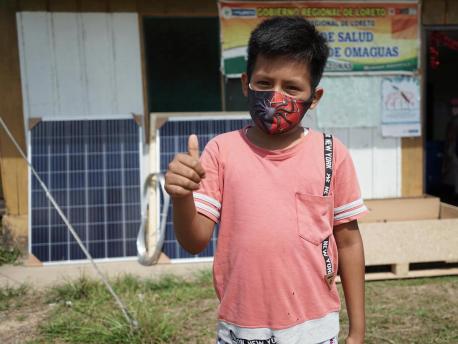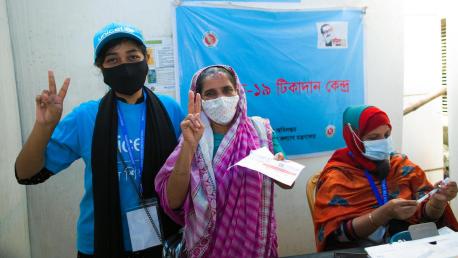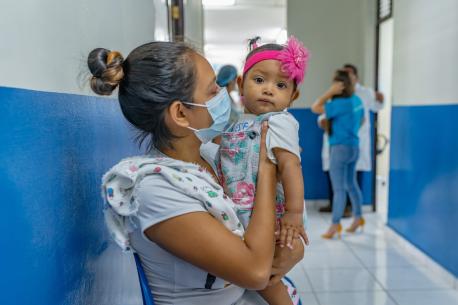
Solar-Powered Freezers Keeping COVID-19 Vaccines Safe in Rural Peru
Delivering lifesaving COVID-19 vaccines to remote communities means keeping them safe along the way. In Peru, where one in five households have no access to electricity, storing vaccines at just the right temperature can be a challenge.
To help solve that problem, UNICEF's Supply Division procured 1,100 solar-powered freezers for use in Peru. UNICEF worked closely with Peru's Ministry of Health to oversee delivery and installation of the freezers, along with other essential cold chain equipment including vaccine carriers and cold packs, so COVID-19 vaccine doses can be safely transported.
Watch the video to see how UNICEF helps keep the cold chain unbroken to ensure safe delivery of COVID-19 vaccines in rural Peru:
"We have to understand that vaccines need to travel along our rivers. The distances are long, and the cold chain cannot be broken," says Dr. Carlos Calampa, Loreto Regional Director of Health. "These freezers will allow us to have a stable supply of ice to be able to continue vaccinating people along the different river basins."
"Even in the district of Masisea, residents don't all live in the surrounding area," adds Olinda Córdova Macur, head of Masisea Health Center in Ucayali Region, Peru. "We have people living as far as seven days up the river."
"It is very important that vaccines reach our communities, because during this pandemic, these communities have been the most vulnerable," says Manuel Dreyfus, Mayor of the District of Masisea. "In this context, vaccines are an opportunity for life."
UNICEF and partners are working around the clock to stop the spread of COVID-19. Join the fight to end the pandemic.
Learn more about how the COVAX Facility is delivering lifesaving COVID-19 vaccines to Peru.
Top photo: A boy in San Joaqín de Omaguas, Peru welcomes the arrival of one of 1,100 solar-powered freezers procured by UNICEF Supply Division for the safe storage of vaccines in Peru. © UNICEF/UN0498075/Vela. Video edited by Tong Su for UNICEF USA.
HOW TO HELP
There are many ways to make a difference
War, famine, poverty, natural disasters — threats to the world's children keep coming. But UNICEF won't stop working to keep children healthy and safe.
UNICEF works in over 190 countries and territories — more places than any other children's organization. UNICEF has the world's largest humanitarian warehouse and, when disaster strikes, can get supplies almost anywhere within 72 hours. Constantly innovating, always advocating for a better world for children, UNICEF works to ensure that every child can grow up healthy, educated, protected and respected.
Would you like to help give all children the opportunity to reach their full potential? There are many ways to get involved.




